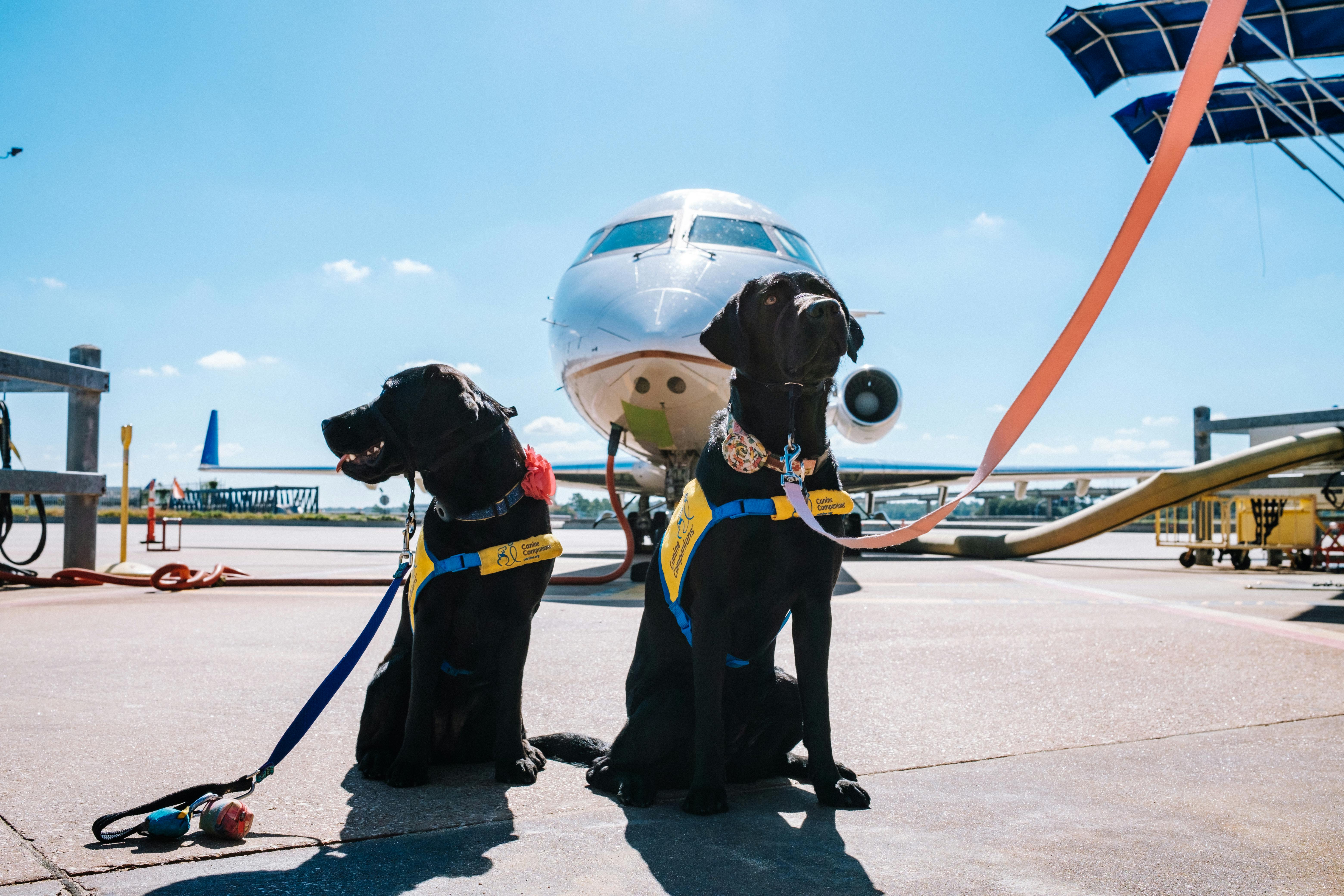Absolutely — you can bring your pets (especially dogs and cats) to Costa Rica — but you’ll need to follow strict rules, proper paperwork, and plan ahead. If done right, your furry family members can make the journey and settle in with you. In this post I’ll walk you through how to bring a pet to Costa Rica, costs, dog‑friendliness, vaccination and certificate requirements, breed restrictions, and tips for easing their transition.
How Do I Bring a Pet to Costa Rica?
The process to import a pet (dog or cat) into Costa Rica involves several steps. Here’s a simplified overview:
- Visit a licensed veterinarian in your home country (ideally one accredited for international travel).
- Get an international health certificate (sometimes called a Certificate of Good Health) within a certain time window before travel.
- Record vaccinations and parasite treatments, with full details (dates, lot numbers, brand, etc.).
- Endorse the certificate by your country’s veterinary/animal health authority (for example, USDA Veterinary Services in the U.S.) so it’s accepted internationally.
- Submit an import permit if needed (especially when the pet travels as cargo or unaccompanied).
- Transport your pet by cabin, checked baggage, or cargo depending on size and airline rules.
- On arrival, Costa Rican officials (SENASA / Ministry of Agriculture) will inspect the pet and documents. If all is in order, your pet can enter without quarantine.
- After arrival, a local Costa Rican veterinarian may need to do a post-entry check within a timeframe (often 14 days).
If you’re using a pet relocation or pet shipping service, they can help manage steps 4 and 5, especially with import permits and customs clearance.
How Much Does It Cost to Fly a Dog to Costa Rica?
The cost varies widely based on:
- Your country of origin (distance, routing, layovers)
- Airline fees (in‑cabin, checked baggage, or cargo)
- Health certificate and veterinary services
- Import permit, customs, broker fees
Here are ballpark figures and ranges:
- Veterinary, health certificate, paperwork, endorsements: Often USD $200 to $400+, depending on vet rates and whether extra tests or translations are needed.
- Airline charges: Smaller pets traveling in cabin might cost a few hundred dollars extra, but large dogs as cargo can run many hundreds or even over a thousand dollars, depending on route and airline. (The Agency Costa Rica Journal)
- Import permit / customs / broker fees: If your pet travels as cargo or unaccompanied, there may be additional permit costs (in Costa Rica about USD $20) and handling fees.
So as a rough guideline: many pet owners report USD $300–$1,500 total cost depending on size and routing. (The Agency Costa Rica Journal)
My tip: Request a detailed quote from your airline for pet transport, and get an itemized vet + permit cost estimate ahead of time. That way there are no surprises at the last minute.
Is Costa Rica Dog Friendly?
Yes — Costa Rica is generally very pet friendly. Many homes, vacation rentals, hotels, and businesses welcome dogs (and sometimes cats) , especially in more tourist‑oriented or expat areas. Nature, beaches, walks, and outdoor lifestyle suit pets well.
Some caveats / cultural notes:
- In rural areas, animals are sometimes allowed to roam; you’ll want secure fencing or supervision.
- Some landlords or properties may have pet size/weight limits, extra pet deposit, or behavioral rules. Always confirm ahead.
- Always practice leash control, proper waste disposal, and local courtesy.
- Veterinary services, pet supply stores, and pet grooming facilities are available in many populated zones like Uvita, Dominical, Ojochal, San Isidro de Pérez Zeledón, etc.
Veterinary Certificate Requirements
To satisfy Costa Rica’s entry rules, your International Veterinary Certificate / Health Certificate must include several pieces of information and satisfy these conditions:
- Issued by a licensed veterinarian (official or accredited) in the country of origin.
- The certificate must often be endorsed by the national veterinary/animal health authority (for example, USDA / APHIS in U.S.) to be valid for export.
- It should be issued within a certain timeframe before travel (often within 14 days prior to departure) to ensure the pet is healthy at time of shipping.
- The certificate should be duplicated (you keep one, the inspector takes one).
- The certificate must state attachments (vaccination record, parasite treatment records) and should be signed, stamped, etc.
- It must include detailed pet identity information: breed, sex, color, date of birth, microchip ID (if applicable) or other identification.
- It must list destination and origin addresses / owner info / consignee info / mode of transport.
- The vet must state that the animal is free of symptoms of communicable disease at time of examination.
- If necessary, the certificate should be in Spanish or have an official Spanish translation if not already.
Vaccination Requirements
Here’s a breakdown of what vaccinations and treatments Costa Rica requires or strongly expects:
Dogs
- Rabies: Dogs older than 3 months must have a valid rabies vaccination on the day of entry.
- Core vaccines: Distemper, hepatitis, parvovirus, leptospirosis are standard in dog vaccination protocols and should be documented.
- Parasite treatments: You must have the dog treated for internal and external parasites (worms, ticks, fleas) within 15 days prior to travel. The vaccine record should note the date, brand, lot number, active ingredient.
Cats
- Rabies: Cats older than 3 months must also have rabies vaccination (valid on day of entry).
- Core vaccines: Feline viral rhinotracheitis, calicivirus, panleukopenia (FVRCP), and sometimes feline leukemia depending on region.
- Parasite treatments: Similar internal/external parasite treatment within 15 days prior to travel.
- Leukemia test: Some sources mention that cats may need a negative feline leukemia test. (Many guidelines for Costa Rica include this as a precaution).
One important note: Costa Rica does not require a quarantine if all paperwork and vaccinations are in order.
However, if your pet arrives with incomplete or invalid documentation, they may be refused entry, returned, or in worst-case scenarios euthanized (though that’s extremely rare if you plan carefully).
Also, some sources note that Costa Rica does not require a rabies titer test (i.e. blood test to confirm antibodies) for most countries, unless coming from a high-risk rabies area.
What Dog Breeds Are Not Allowed in Costa Rica?
Costa Rica officially has no national breed bans on dogs. That said, airlines may impose restrictions on certain breeds (especially large or “dangerous” or snub-nosed breeds). For example, Volaris (a Latin American airline) lists several breeds it prohibits or requires liability waivers for. Some breeds or breed types that airlines may restrict include:
- Pit Bull
- Rottweiler
- American Staffordshire Terrier
- Boxer
- Bulldogs / English Bulldog
- Cane Corso
- Doberman
- Shar Pei
- Neapolitan Mastiff
Snub-nosed breeds (brachycephalic dogs) may also require waivers because they’re more vulnerable to respiratory issues in cargo or under stress.
Because airline rules can change and differ by carrier, always check your specific airline’s pet policy before booking. Even if Costa Rica permits a breed, the airline may refuse to transport it.
Ways to Introduce Domestic Animals to Costa Rica
Here are tips and strategies to help ensure a smooth transition for your pet:
- Acclimate them to the travel crate early — let them explore and nap in it ahead of time so it’s not a scary new thing.
- Keep your schedule consistent — maintain feeding times, walks, and familiar routines as much as possible.
- Provide comfort items — familiar blankets, toys, and small pieces of clothing with your scent can help them feel grounded.
- Hydrate & feed smartly before travel — avoid heavy meals right before flying but ensure they’re hydrated.
- Choose good flight timing — avoid midday heat or long layovers; shorter total travel time is safer.
- Monitor post-arrival stress — allow quiet rest, avoid overwhelming the pet in the first few days, and gradually introduce new surroundings.
- Vet check in Costa Rica — within 14 days, take the pet to a local licensed vet to check overall health and get a Costa Rican vet certificate if required.
- Secure your property — ensure fencing, gates, or secure enclosures so your pet cannot wander off in unfamiliar terrain.
- Microchip and identification — even if Costa Rica doesn’t strictly require microchips, it’s excellent practice so your pet can be identified if lost.
- Socialization and patience — if your pet is shy or anxious, give them time to adjust and gradually expose them to their new surroundings.
Valuable Tip
Don’t leave documentation or timing to the last minute. Some crucial steps — like getting the health certificate endorsed by your government office, or coordinating airline pet slots — may take days or require appointments. I’ve seen people nearly miss flights because their certificate endorsement lagged or scheduling didn’t align.
A good timeline (for example, from U.S. to Costa Rica) might look like:
- ~4 to 6 weeks before: Plan pet travel logistics, airline options, puppy/kitten age requirements, identify a vet.
- ~3 to 4 weeks before: Begin any vaccinations or boosters needed.
- 14 days (or the required window) before travel: Vet issues health certificate, parasite treatment, paperwork reviewed and translated, endorsement process started.
- 7–10 days before: Confirm airline pet spot, double-check crate size, confirm import permit (if needed).
- Travel day: carry all documentation, duplicates, check arrival times with local customs/vet hours.
One extra tip: Keep copies (digital + printed) of all your pet’s vaccination and health records, and ensure translations are certified if needed. At the airport, some inspectors may ask to see every detail.
Ready to Make the Move?
Bringing your furry friend to Costa Rica is absolutely possible with the right prep — and once you arrive, both you and your pet can enjoy the pura vida lifestyle together.
Check out our pet-friendly real estate listings across Uvita, Dominical, Ojochal, and beyond. Whether you’re looking for a fenced yard, jungle trails, or beachside bliss, Ballena Properties can help you and your pets feel right at home. Explore pet-friendly homes now
Recommended Reads
- Buying a home in Costa Rica: A complete guide for expats
- Buying a Costa Rica Beach House: What You Should Know
- 5 Mistakes Foreign Buyers Make When Buying Costa Rica Real Estate
- How to Generate Rental Income from Your Costa Rica Vacation Home
- Beachfront or Jungle Home in Costa Rica: Which is the Best Investment?
- 5 Reasons to Invest in Real Estate in Costa Rica’s Southern Zone
- Costa Rica vs California Real Estate
- Is it Cheaper to Live in Costa Rica or the USA?



